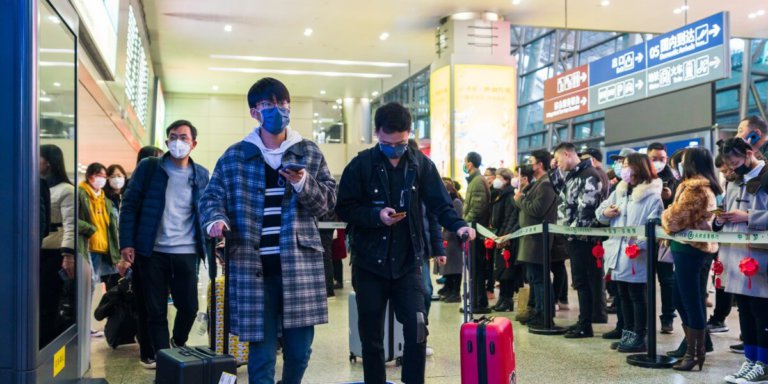
As the COVID-19 outbreak spreads globally, a new survey has found the majority of international students are still going ahead with their study abroad plans.
QS recently surveyed over 2,000 international students planning to study abroad to see whether COVID-19, the official name for the novel Coronavirus, has impacted their plans.
They found that “nearly two-thirds (60 percent) of respondents said their plans to study abroad had not been affected by the Coronavirus”.
However, 27 percent of survey respondents said their plans to study abroad has been affected. Furthermore, 10 percent of all respondents said “they now intend to defer their entry to next year” and eight percent said “they now intend to study in a different country”.
Higher education institutions worried about declining international student enrolment due to the outbreak can take solace in the fact that only two percent of all surveyed said that they no longer plan to study overseas – health concerns were cited as one of the main reasons why their plans to study abroad changed.
In a press release, CEO of QS Nunzio Quacquarelli said that the findings come at a crucial time for the higher education sector as universities and colleges start planning for the next academic year.
“As a responsible partner to the sector, we hope that our research will offer a degree of clarity for institutions and help them understand international students’ latest thinking,” he said.
“The data suggests that although the Coronavirus is creating a great deal of uncertainty, the impact is mostly one of timing. In response, the sector should aim to be flexible on application deadlines and delayed start dates.”
“At QS, we will continue to provide key services and insights as a key partner to the higher education sector, supporting institutions in the most effective way so that international students can receive the practical advice they need from their prospective university.”
How COVID-19 is currently affecting students
Iran has been added to the list of countries banned entry into Australia due to #coronavirus Keep up to date with visa implications on our blog https://t.co/koeP6yXMlg
— Chris Johnston (@Work_Visa) March 2, 2020
Countries newly affected by the virus are currently gearing up to contain the outbreak. It was recently reported that schools and universities will remain closed in Italy, where the total number of cases jumped by 240 to 1,128.
Schools and universities have also been ordered to close until Mar 8 as a precautionary measure in Lebanon, which is close to Iran, the epicentre of the outbreak in the Middle East.
In China, where the outbreak originated and has the highest number of cases, universities have closed their doors but have rapidly transitioned to online delivery instead.
According to Inside Higher Ed, the transition from face-to-face to fully online was done at lightning speed at some universities despite them being unprepared for such a scenario.
Some have done it in less than three weeks, a remarkable feat considering that it can take several months to move from in-person classes to fully online.
Liked this? Then you’ll love…
Coronavirus: Was it right to close all schools in Japan?
Coronavirus prompts universities to stop China study abroad programmes







